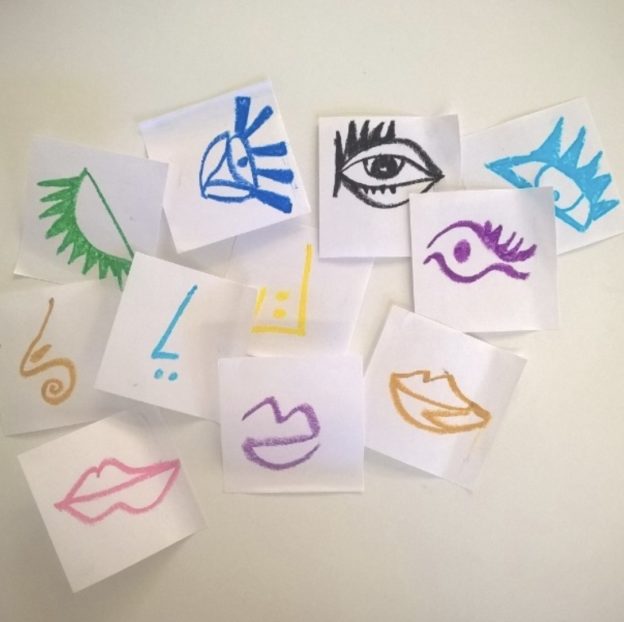I was boycotting the news for a couple of days. I am teaching virtually and on screen more than 40 hours a week. Watching the news was totally bringing me down. I need to stay upbeat. I need to be cheerful and engaging for my students. I need a break from the talking heads.
Yet, as it plays in the background, I can’t help but cringe. The schools this or that. At lunchtime, Jake Tapper just said that the science should speak over the teachers’ feelings. Duh-fa?
Oh, no he didn’t. Jake really, please. Usually, I like your show, but come on. I think we need to consider when experts ask the wrong questions that impact school policy. This is literally a life and death issue. You say that we should listen to the science over the feelings of teachers. Yet, us teachers are the experts of knowing the environmental factors of our schools.
How many times have teachers brought their own toilet paper and soap to school because there was none? Indeed, at one middle school the boys used to pee inside the soap dispenser. It was yellow like Dial soap and fooled some of the middle schoolers. Furthermore, when I taught students who have severe and profound needs, some of the parents would give their children laxatives before school so that they would not have to change their diapers. Yes, teachers have seen it all.
Back to the science, as teachers most of us love science. With that, I ask you to please not dismiss our feelings. They are there for good reason. Our fight, flight, and freeze are there for a reason. We know our environment.
I ask the scientists to please consider researching how many school facilities are actually equipped with proper ventilation? I taught in a new portable that was off gassing and have asthma because of it. I use an inhaler. Indeed, if you look at the research, many children from Title 1 schools have more cases of asthma.
Also, it would be beneficial ask our social scientists to step in and do some research. For example, how many school administrators, teachers, students, and parents are willing to wear masks on campus? When I taught at a brick and mortar school in the spring, half the staff didn’t wear masks or they would wear them below their chins and pull them up when admin walked up. We know that not all school staff follows the rules. I have seen teachers in close range with students talking with their masks down. What does that say to our children? To each other?
With that, special education is the last to go and the first to go back. Indeed, some of the special education departments have been open the whole time. In a rural school district in California the special education department had 100 student cases in one month.
In Boston, the plan was to have special education go back first. In Chicago, where some of my cousins are teaching and are principals they are expected to be back to work this week. One hundred years ago, Chicago schools were open during the 1918 pandemic. The papers reported they didn’t want the kids to run around in the city. Is that a reason to keep schools open during a pandemic? And why is it that non-teachers are telling us to go back?
With that, a courageous shout out to Chicago Librarians who have worked all throughout the pandemic. One of our cousins is a librarian at a public library in Chicago. The libraries have been open the whole time. While Librarians have been deemed essential workers, they are not eligible for vaccination in Chicago, yet. Why is this?
So back to community health, I wonder are our epidemiologists asking the wrong questions? Or perhaps the researchers are limited by the perspective of their field? Why not take an interdisciplinary approach to school reopenings? Why isn’t the CDC looking at a more holistic approach before making the blanket statement that it is safe to open schools? Another poignant point one of the commenters made was that teachers are deemed as essential workers, but not treated as essential workers (i.e. we are not eligible for vaccinations and many teachers are teaching f2f).
A school is a school. It is a snapshot of a community. We do not work in a medical environment. We do not have accountability and enforcement for non-maskers. We do not have adequate buildings. We do not have teachers all on the same page.
This year I am teaching virtually .I am thankful, though — I feel like a robot most days. All the special education support staff is cut. We have no assistants or secretarial staff. There is more paperwork than ever to be done.
With that, most of my students are located in Los Angeles. Some of my students and their families have had Covid. Teachers are dinged when students are absent. We call, call, and call. We are compassionate ears, but also have a job to do. Our evaluations are tied with numbers and the numbers include how many students attend our sessions.
Some of my students have had a grandma or grandpa pass away. Some of my students have severe disabilities and need much more help than I can give them via our online sessions. We work with speech therapists, counselors, occupational therapists. We are a team. Though it is not ideal. I am thankful that I can safely work from home. I hope that the CDC will consider opening up a dialogue with teachers and give teachers a voice into which questions to consider for further research in school reopenings.
